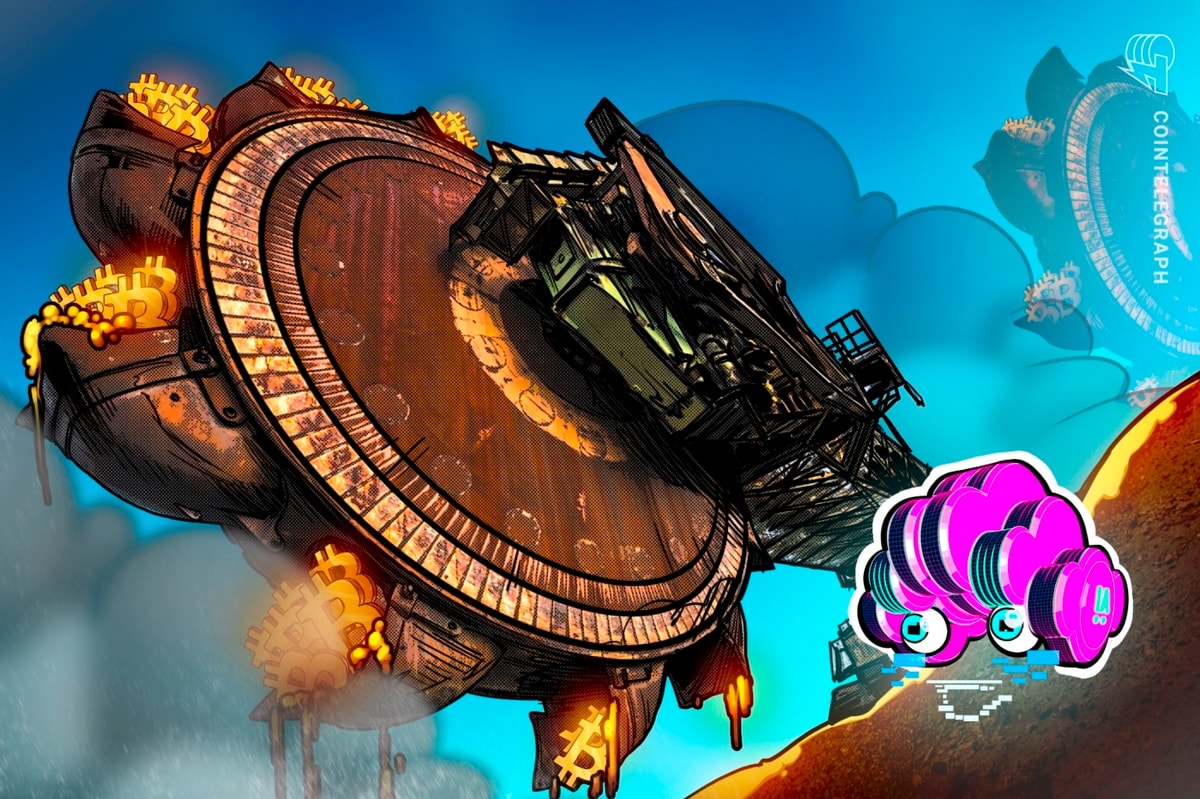Bitcoin Miners Shift to AI: How Crypto Pros Are Embracing New Tech

Bitcoin Miners Embrace AI Amid 2024 Halving: A Shift in Strategy
As the 2024 Bitcoin halving approaches, miners are increasingly exploring opportunities in artificial intelligence (AI) to adapt to changing market conditions. This transition has seen some companies merely testing the waters, while others have made significant investments, repurposing their mining rigs and securing substantial financing.
Core Scientific: A Successful AI Transition
Core Scientific stands out as a notable success story among Bitcoin miners that have pivoted to AI. After filing for Chapter 11 bankruptcy in late 2022, the company re-emerged in early 2024, relisting on Nasdaq. It shifted its focus from solely Bitcoin mining to providing colocation services for AI firms, signing a landmark 12-year, $3.5 billion agreement with CoreWeave in June 2024 to host high-performance computing operations.
Despite a drop in Q1 revenue to $79.5 million from $179.3 million the previous year—attributed to the halving and the transition to AI hosting—the rise in Bitcoin prices post-halving has mitigated some financial losses. In late June 2025, renewed acquisition talks between CoreWeave and Core Scientific led to a surge in the latter’s stock price.
Hut 8: AI as a Secondary Focus
Hut 8 began to formalize its AI initiatives in September 2024 with the launch of its GPU-as-a-Service through a new subsidiary, Highrise AI. The company deployed over 1,000 Nvidia H100 GPUs to enhance its cloud-based AI services, coinciding with a five-year revenue-sharing agreement as Bitcoin mining revenues dwindled after the April 2024 halving.
By Q1 2025, Hut 8 mined 167 BTC, a significant decrease from 716 BTC the previous year. The company reported a net loss of $134.3 million, but its CEO emphasized that this was due to strategic investments that increased its hashrate by 79%. Hut 8 also holds 10,273 BTC, ranking it ninth among publicly traded companies in terms of Bitcoin treasury.
Iren and Hive: AI Revenue Growth
Miners like Iren and Hive are beginning to see substantial revenue from their AI ventures, even as Bitcoin mining remains their primary focus. Iren, formerly known as Iris Energy, started acquiring Nvidia GPUs in early 2024 and signed its first AI contract by February, deploying around 4,300 GPUs by mid-2025. In Q3 of fiscal year 2025, Iren mined 1,514 BTC, an increase from the previous quarter.
The company’s AI cloud revenue rose by 33% to $3.6 million, and it is developing a liquid-cooled AI data center in Texas, alongside a facility in British Columbia designed for 20,000 GPUs. However, a class-action lawsuit filed in October 2024 alleged that Iren misled investors regarding the Texas facility’s readiness.
Hive, which rebranded from Hive Blockchain in mid-2023, has also made strides in AI, investing $30 million in December 2024 to deploy GPUs in Quebec. By mid-2025, Hive had over 5,000 GPUs operational, generating $115.3 million in revenue for the fiscal year, with $10.1 million coming from AI and high-performance computing—triple the previous year’s figures.
Major Miners Preparing for a Post-Mining Era
Riot Platforms and Marathon Digital Holdings (MARA) are among the largest Bitcoin mining companies now laying the groundwork for a future beyond traditional mining. Riot has begun evaluating the conversion of its Corsicana, Texas facility into high-performance computing infrastructure, pausing further Bitcoin mining expansion at the site. Although Riot has yet to secure significant AI contracts, its large-scale facility positions it well for future opportunities.
In Q1 2025, Riot mined 1,530 BTC, generating $142.9 million in revenue—double that of Q1 2024—thanks to rising Bitcoin prices and an increased operational hashrate. Riot holds 19,225 BTC, making it the fourth-largest corporate Bitcoin holder globally. Meanwhile, MARA boasts the largest Bitcoin treasury among miners, with 50,000 BTC.
In March 2024, MARA introduced its MARA 2PIC700, an immersion cooling system designed for both AI and crypto mining workloads. By early 2025, the company began piloting two high-performance computing test sites, each utilizing around 30 megawatts of power.
Canaan: Moving Away from AI
In contrast to the trend of Bitcoin miners embracing AI, ASIC manufacturer Canaan has opted to shut down its AI chip division as of July 2025. With a mere 2.1% share of the global ASIC market, Canaan aims to concentrate on mining hardware and establish a resilient presence in North America, distinguishing itself in an industry increasingly focused on AI solutions.







